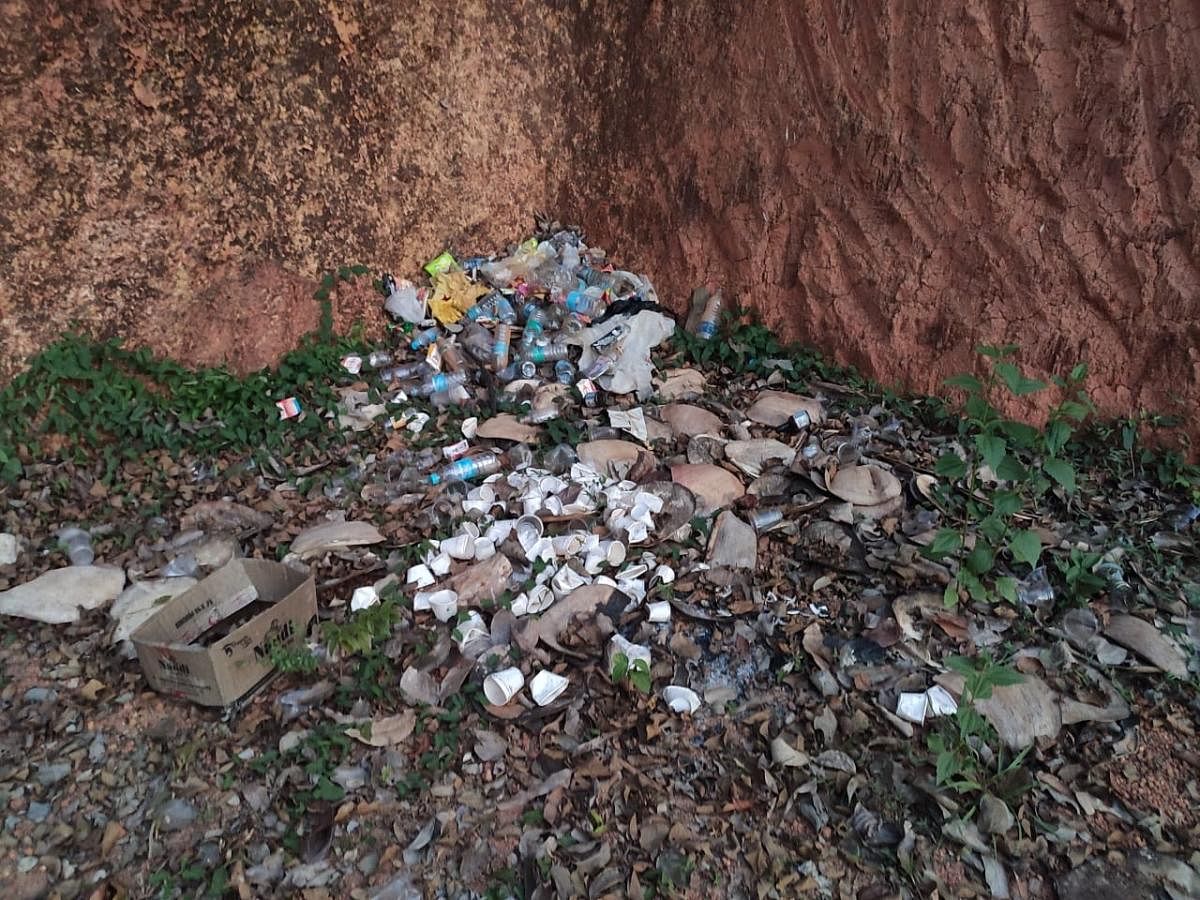

Three young men from Belthangady taluk in Dakshina Kannada used their lockdown time to tackle a problem older than the coronavirus pandemic: pollution.
A few days into the lockdown, the trio of Avinash Bhide, Vrishanth Khadilkar and Purujith Bhide set out towards River Kapila – a tributary of the Netravathi – that flows through Arasinamakki village first and then Shishila village, in close proximity to the Western Ghats.
They started picking up the litter along the road parallel to the river, on the riverbank, and then from the waters.
At the end of the clean-up, “We had collected eight sacks of - or about 500 - beer bottles and cans, five sacks of plastic waste, and also chicken waste,” said Avinash, a farmer and an electrician from Arasinamakki.
‘This cleaning would have happened anyway, but on a weekend, because we are all busy on other days. The lockdown got us together sooner. It’s our little contribution as citizens. As for social distancing, we maintained it. It was localised, and we did not invite anyone from outside for the clean-up,” he said.
Vrishanth is an editor based out of Dharmasthala and Purujith is a student pursuing MBA, and their friendship of 10 years has seen many clean-ups in and around the Western Ghats.
“The trash keeps coming back,” rued Avinash and painted the bigger picture, “Kapila has a catchment area of about 200 sq km and the water inflow capacity sometime back was 3,000 cusecs, during rainy season, so during summer, it’s at least 500 cusecs. But now, it’s at about five cusecs! And the major irritant at Arasinamakki is people washing their vehicals. This leaves a film of oil and grease on water. There is also the dumping of chicken waste. The same water goes to a village,” recalled Avinash.
Shashikala, Arasinamakki Gram Panchayat President, said, “We have a flex declaring that all activities that pollute the river are banned, and people will be fined if they do so.”